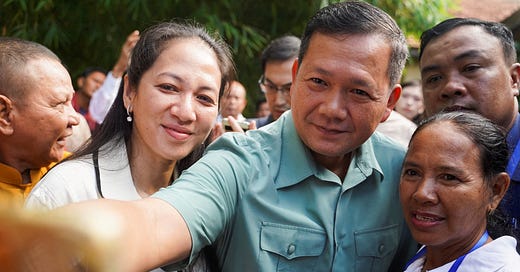Prospects and Pitfalls
Cambodia and Malaysia share a complex tapestry of cross-cultural interactions and diplomatic nuances. Malaysia has been a significant investor in Cambodia, especially in travel and manufacturing.
By Dr. Seun Sam
On February 27, 2024, Prime Minister Hun Manet and his spouse Pich Chanmony are expected to make an official visit to Malaysia at the invitation of Prime Minister Anwar Bin Ibrahim, the current Prime Minister of Malaysia. The diplomatic relations between Cambodia and Malaysia were established on August 31, 1957, under the leadership of th…





